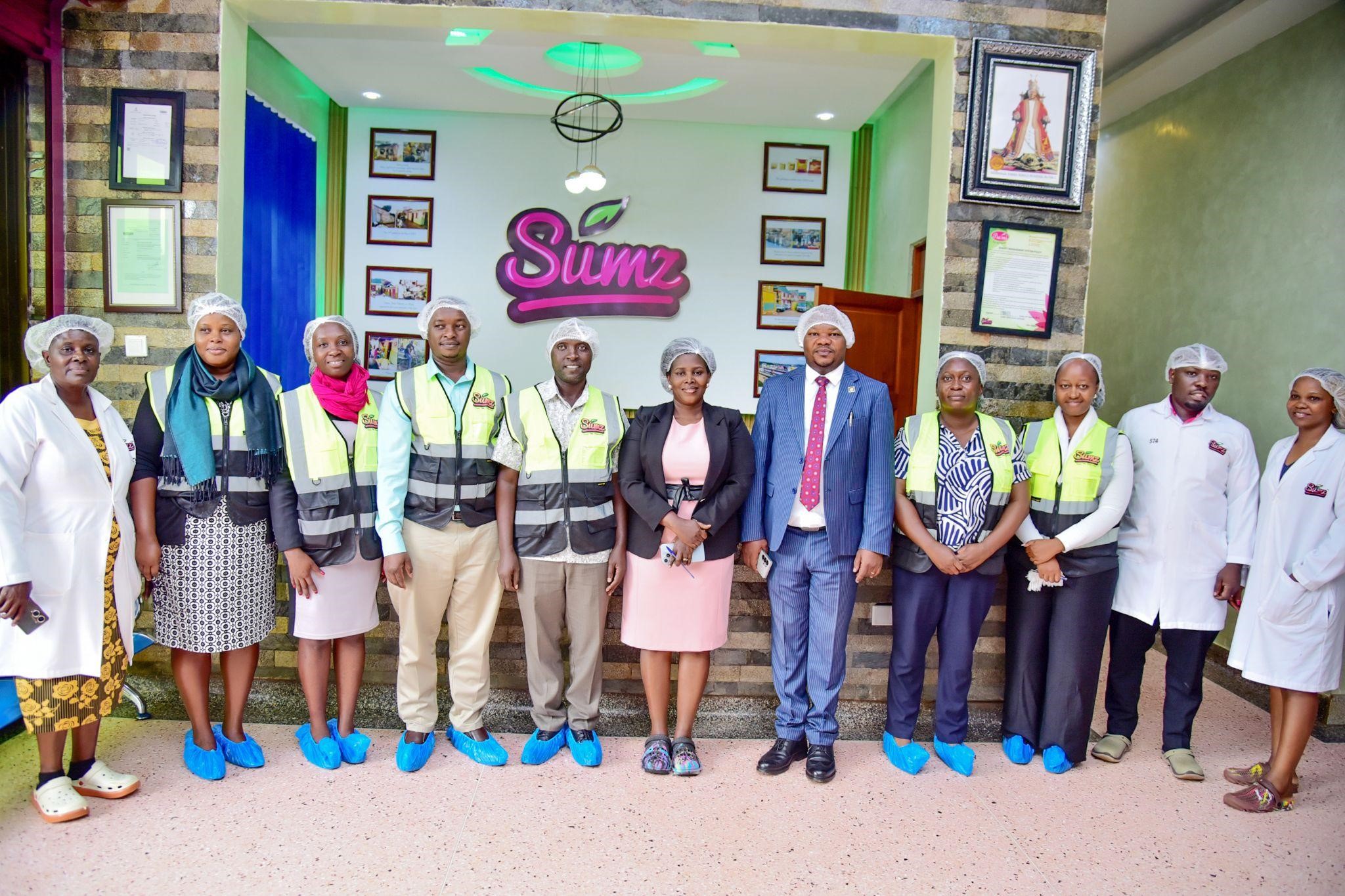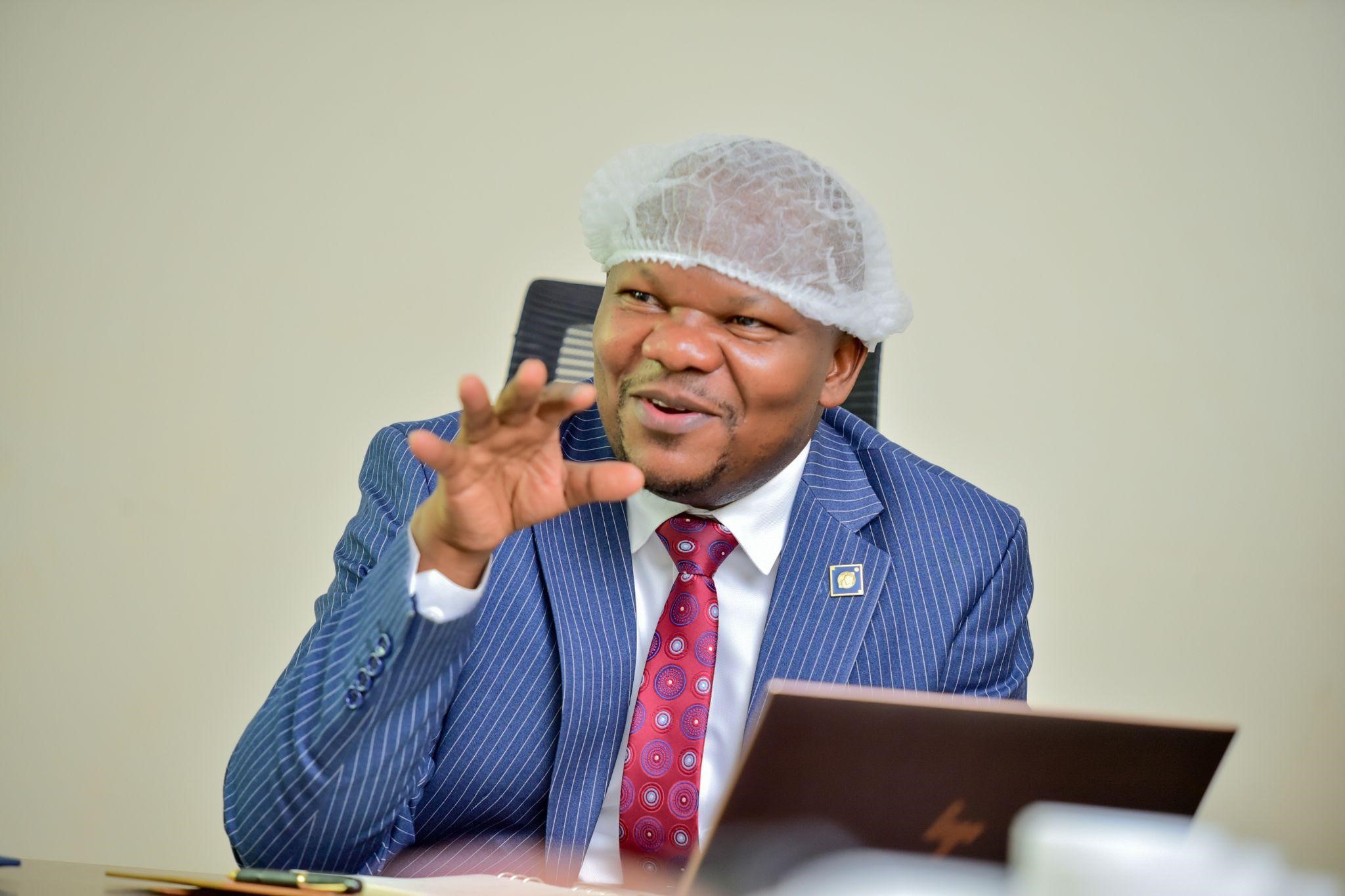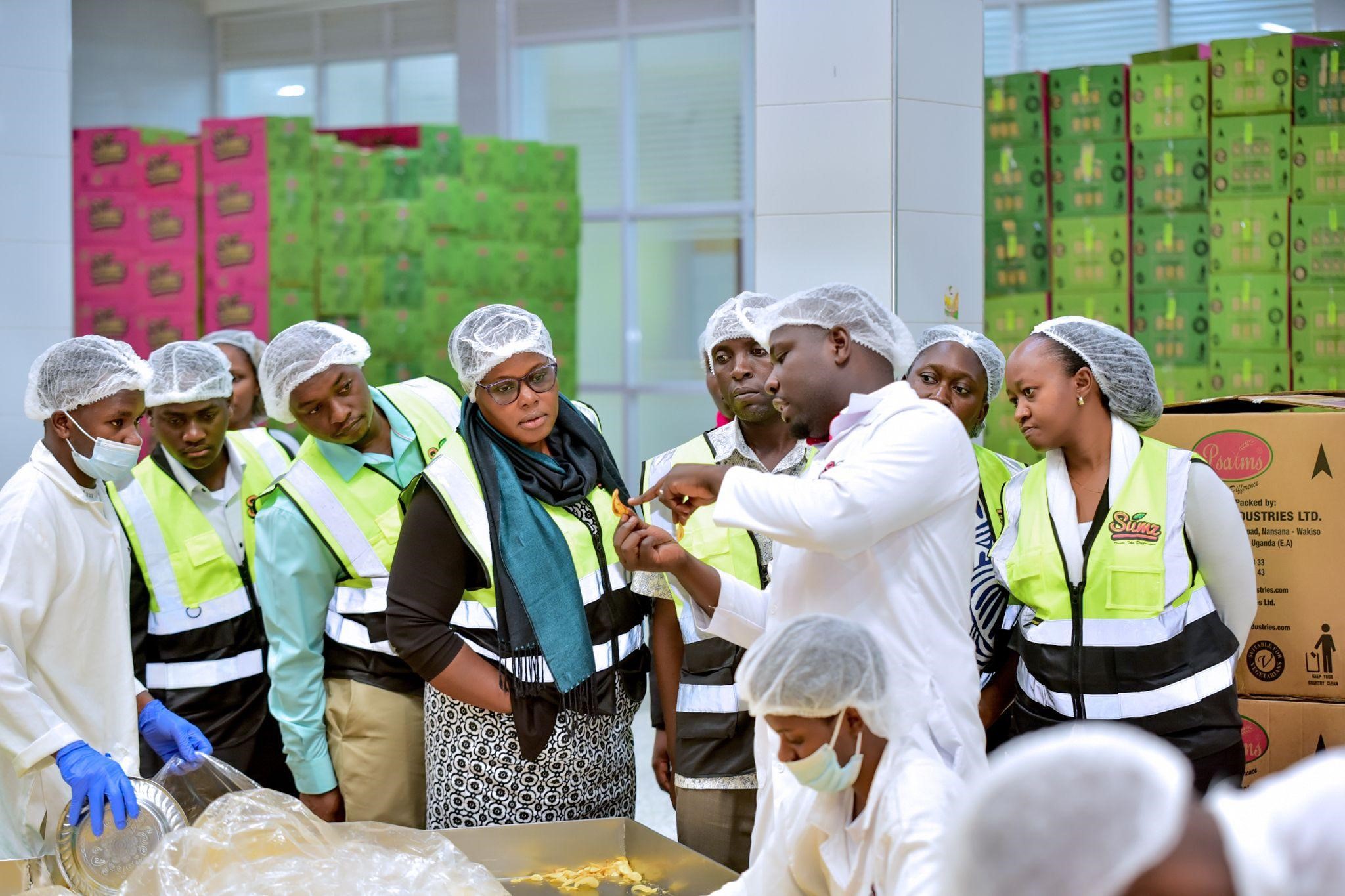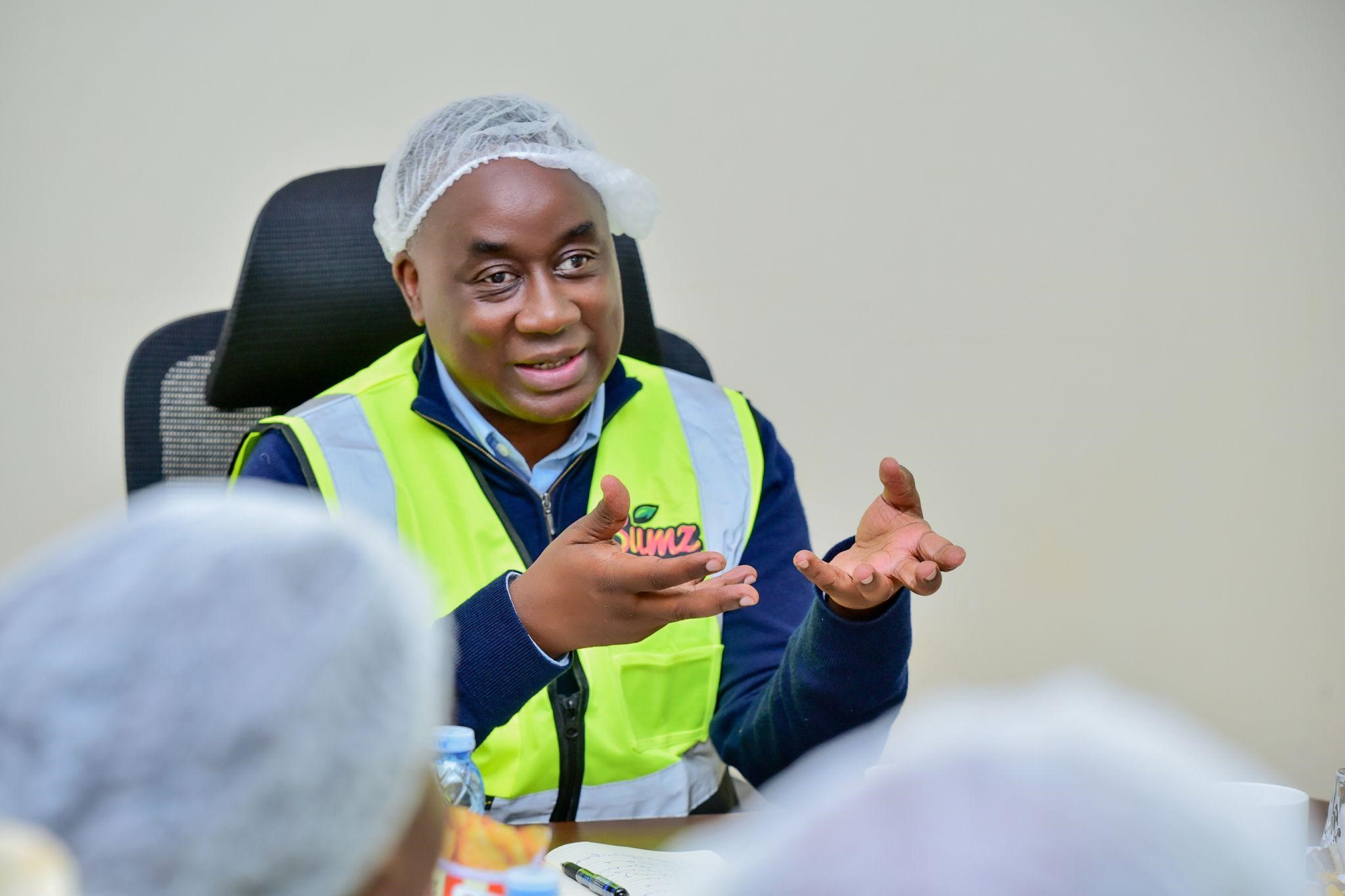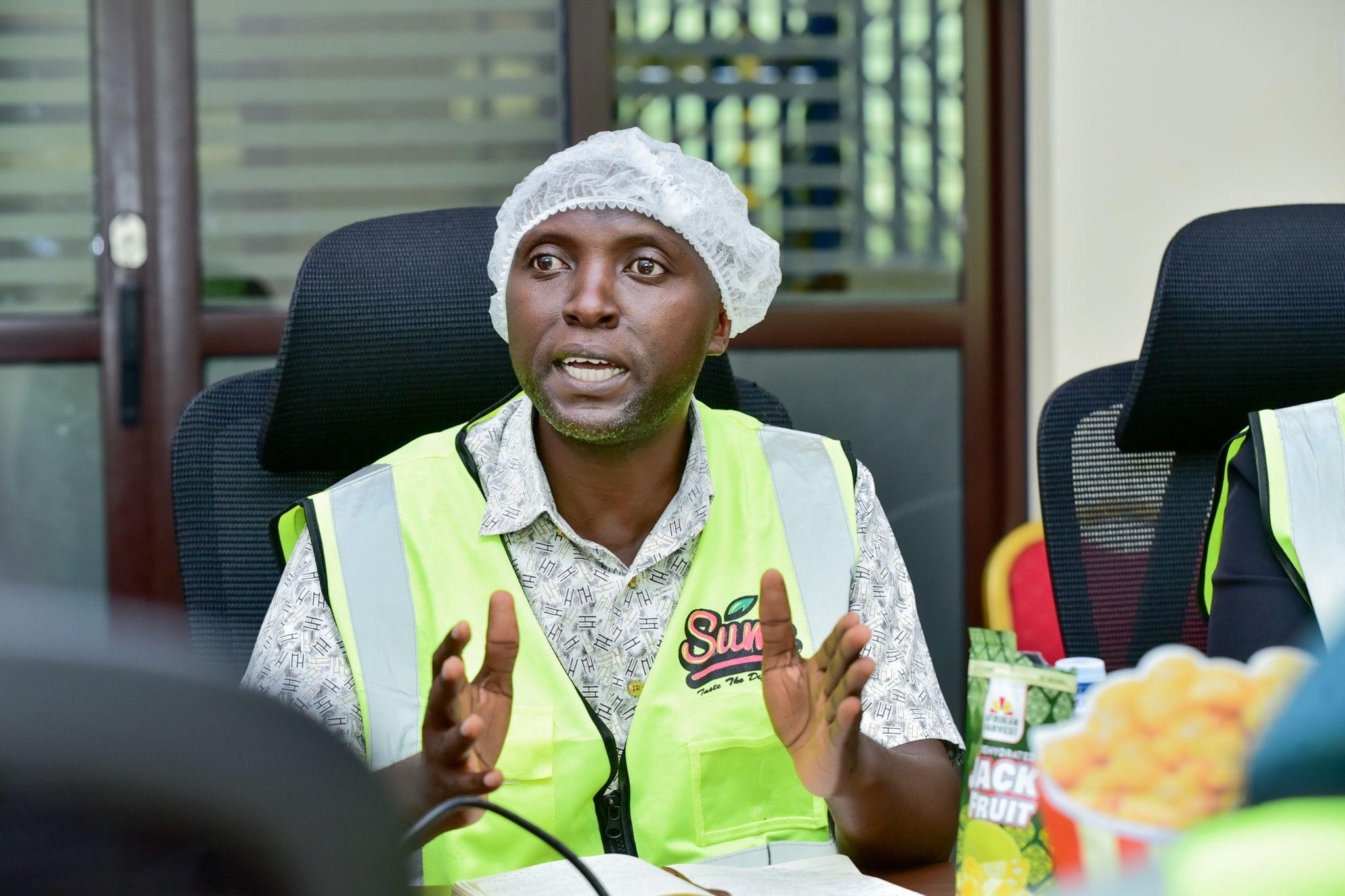The curtains came down on the Higher Education Resource Services-East Africa (HERS-EA)’s Inaugural Academy on Friday 7th July 2017 at a colourful ceremony held at the Grand Global Hotel, Makerere. The few minutes prior to the start of closing ceremony painted a brief picture of what HERS-EA is all about; an army of volunteers, participants and facilitators joining in to redecorate the room, all under the careful watch of HERS-EA’s Chair-Dr. Ruth Muwazi and UK Coordinator-Ms. Naomi Lumutenga, as well as Acting Director Gender Mainstreaming Directorate (GMD)-Ms. Frances Nyachwo.
Right there was a live example of leadership and mentorship as the mostly younger ladies and few gentlemen got the room ready, at their seniors’ bidding. A few rooms away, HERS-EA Co-founders Prof. Margaret Khaitsa and Dr. Florence Wakoko-Studstill could be seen quietly engaging Amb. Oliver Wonekha, perhaps sharing strategies on future collaborations. H.E. Oliver Wonekha; Uganda’s Ambassador to the USA in transit to Rwanda, would later be joined at the event high table by the Vice Chair, Education Services Commission-Mrs. Elizabeth Gabona, Deputy Vice Chancellor (Academic Affairs)-Dr. Ernest Okello Ogwang and Vice Chancellor, Busitema University-Prof. Mary Okwakol. The Deputy Vice Chancellor (Finance and Administration) & Vice Chancellor-Elect – Prof. Barnabas Nawangwe and Principal, College of Humanities and Social Sciences (CHUSS)-Prof. Edward Kirumira completed the list of leaders in attendance at the closing ceremony.

Addressing the gathering, HERS-EA Chair-Dr. Ruth Muwazi thanked all invited guests for gracing the occasion as well as the conference sponsors for ensuring that the event was a success. “We thank the Inter-University Council for East Africa (IUCEA) who sponsored a number of non-Ugandan participants to attend the workshop, and Makerere University School of Women and Gender Studies under the Sida Project sub-programme and Principal Investigator, Dr. Consolanta Kabonesa who sponsored 10 participants.
“Makerere University Gender Mainstreaming Directorate headed by Ms Frances Nyachwo also sponsored 10 participants, and provided office space for the HERS-EA Secretariat, Makerere University Central Administration sponsored 10 participants and Sida (Swedish International Development Cooperation Agency) sponsored 10 participants” acknowledged Dr. Muwazi. HERS-EA UK Coordinator-Ms. Naomi Lumutenga continued with the acknowledgements by singling out Champions such as Prof. Barnabas Nawangwe, who ensured that the HERS-EA Secretariat secured office space, and was always on hand to advise the leadership. She also thanked the Principal, College of Veterinary Medicine, Animal Resources and Bio-Security-Prof. John David Kabasa for believing in HERS-EA’s vision right from the start, and Prof. Edward Kirumira who when approached appointed a liaison person for HERS-EA at CHUSS.
To the participants, Ms. Lumutenga commended the parable of talents (Matthew 25:14-30) saying, “I hope that we have helped you to dig into yourselves, discover your talents and hopefully use them, or else lose them. If you don’t develop it and you lose it and society will miss out on your unique contribution” she counseled.

She challenged participants to embrace the power of networking and mentoring, announcing that she had received offers by four ladies; all experts in their field, who are willing to edit participants’ publications and get them going on the path to excellent publication with leading journals. “Keep in touch with each other, share your stories to encourage other women and I hope that you have taken something out of this workshop to impact your life” concluded Ms. Lumutenga.
The Inaugural Academy drew participants from six countries namely; Kenya, Tanzania, Rwanda, Burundi, Ethiopia and the host country Uganda. Expressing his delight to the leadership for their kind acknowledgement of his contribution, Prof. Barnabas Nawangwe heartily congratulated HERS-EA upon not only pulling off their Inaugural Academy but also drawing participants from each of the six countries.
“I am glad that I facilitated you to achieve this success and I thank the pioneers, particularly the Ugandans based in the US for not forgetting their homeland. I also thank colleagues in Makerere such as Dr. Ruth Muwazi, Dr. Consolata Kabonesa, Ms. Frances Nyachwo and many others for collaborating with them to make HERS-EA a success” remarked Prof. Nawangwe.

Prof. Mary Okwakol is a lady of many firsts dotted across her long and successful career. Addressing the audience at the closing ceremony, she shared being the first female Vice Chancellor of a public University and first Vice Chancellor of Busitema University as some of the examples. In her brief remarks, the 2007 Graduate of HERS-South Africa showed that it was indeed possible to balance family and career.
“I got married soon after my first degree and this year, we mark 43 years in marriage” said Prof. Okwakol amidst prolonged applause and cheers from the audience. “I thank God for a stable family and a steady career. I have successfully raised three professional children; an Accountant, a Medical Doctor and a Lawyer and we have five grand children so far” she added.
Prof. Okwakol shared that her journey from a Graduate Assistant at Makerere University to the first female Vice Chancellor in Uganda should encourage young ladies that it is possible raise a family and build a successful career. She noted that HERS was at the bottom of her heart and expressed happiness that the link she had initiated between HERS-EA and IUCEA had produced results in form of sponsorship.
Speaking on behalf of the Vice Chancellor, Prof. John Ddumba-Ssentamu, the first deputy Vice Chancellor, Prof. Ernest Okello Ogwang thanked the HERS-EA Visionaries for reminding Makerere University Management of their responsibility to promote women leaders in Higher Education. “We thank the Facilitators who have so willingly given of their time to support this cause and we hope that you will not tire of giving back. We hope that those who have benefitted will always remember you for the difference you have made in their professional and personal lives” remarked Dr. Okello Ogwang.

He further noted that the beneficiaries’ gratitude to the organisers, supporters, facilitators and funders of the Inaugural academy would be best demonstrated through their proactive efforts to develop their respective institutions. He urged them to be supportive of other women and to always lead by example.
The HERS-EA Inaugural Academy beneficiaries were never short of examples of women who had successfully balanced family and career. Imagine starting out as a secondary school teacher and growing through the ranks to become the second-in-command at the Nation’s Education Sector Recruitment Agency… That is Mrs. Elizabeth Gabona’s testimony, currently serving as Vice Chair, Education Services Commission, after a career spent serving the education sector, including 37 years of stable marriage.
“I was present on that day, 5th August 2014 when we launched HERS-EA at Imperial Royale Hotel and it makes me very happy to come back today and witness the fruits of that launch. I congratulate the HERS-EA founders for their vision, voice and commitment to uplifting women and remembering to give back to their home, country and region” remarked Mrs. Gabona.
She noted that HERS-EA had demonstrated that its model was an excellent tool to move the East African Community (EAC) integration agenda forward, adding that women are the best change agents. She noted that self esteem was still a major obstacle for so many women and the best way to build it was right from the grassroots level. “Let us light our own sky for if we don’t, no one will do it” added Mrs. Gabona.

Allies are vital assets to the advancement of any cause or development agenda. HERS-EA has so far done a commendable job by securing female leaders from her consortium of partners to motivate female early career professionals. Nevertheless, Prof. Edward Kirumira in his remarks urged HERS-EA to step beyond the mentorship in female dominion and bring some males on board.
“My approach is based on the three prongs of Networking, Mentorship and Collaboration. In terms of networking, I urge all participants to look at the content of your academy material, pay attention to the people around you, and follow them up after this workshop and network with them” urged Prof. Kirumira.
With regard to Mentorship, Prof. Kirumira opined that the only way that HERS-EA would know that they had achieved their objective through registering an increased number of male mentors to the aspiring female professionals. On the Collaboration front, Prof. Kirumira shared that CHUSS by virtue of its over 10,000 student population and 293 Faculty Members presented a good starting point. “Let us sit down together and write these grant proposals. The funds are out there, let us go out and get them” he concluded.

Amb. Oliver Wonekha is a proud alumna, having secured both her BSc (Botany & Zoology) and Postgraduate Diploma in Education from Makerere University. Crowning the day’s speeches, Amb. Wonekha congratulated the founders upon not joining the crop of complaining Ugandans in the Diaspora but working hard to link the US to Uganda, “and to all of you here at home, the supporters, donors, universities, thank you for welcoming and being part of making this innovative idea a reality” she added.
Re-echoing Prof. Kirumira’s input on the need to include men in their networking, Amb. Wonekha urged the ladies to use the male leaders that already understood their cause to reach out to others. “Look out for these men because otherwise we are talking to ourselves. So let’s talk nicely to them, especially the Professors who are seated right here and the men in this room,” rallied the Ambassador, before adding “we start here and we build on that.”
The ambassador concluded her remarks on a note that resonated with the day’s theme; Advancing Women in Leadership: Empowered Women Empower Women. “I also did some balancing. I am a single parent with three daughters; One is working with the UN in Vienna, the second one is with Apple in the US and the third is a lawyer right here in Uganda, so you too can make it!”

Article by Public Relations Office

 General4 hours ago
General4 hours ago
 Humanities & Social Sciences1 week ago
Humanities & Social Sciences1 week ago
 General4 hours ago
General4 hours ago
 General1 week ago
General1 week ago
 Agriculture & Environment2 weeks ago
Agriculture & Environment2 weeks ago









